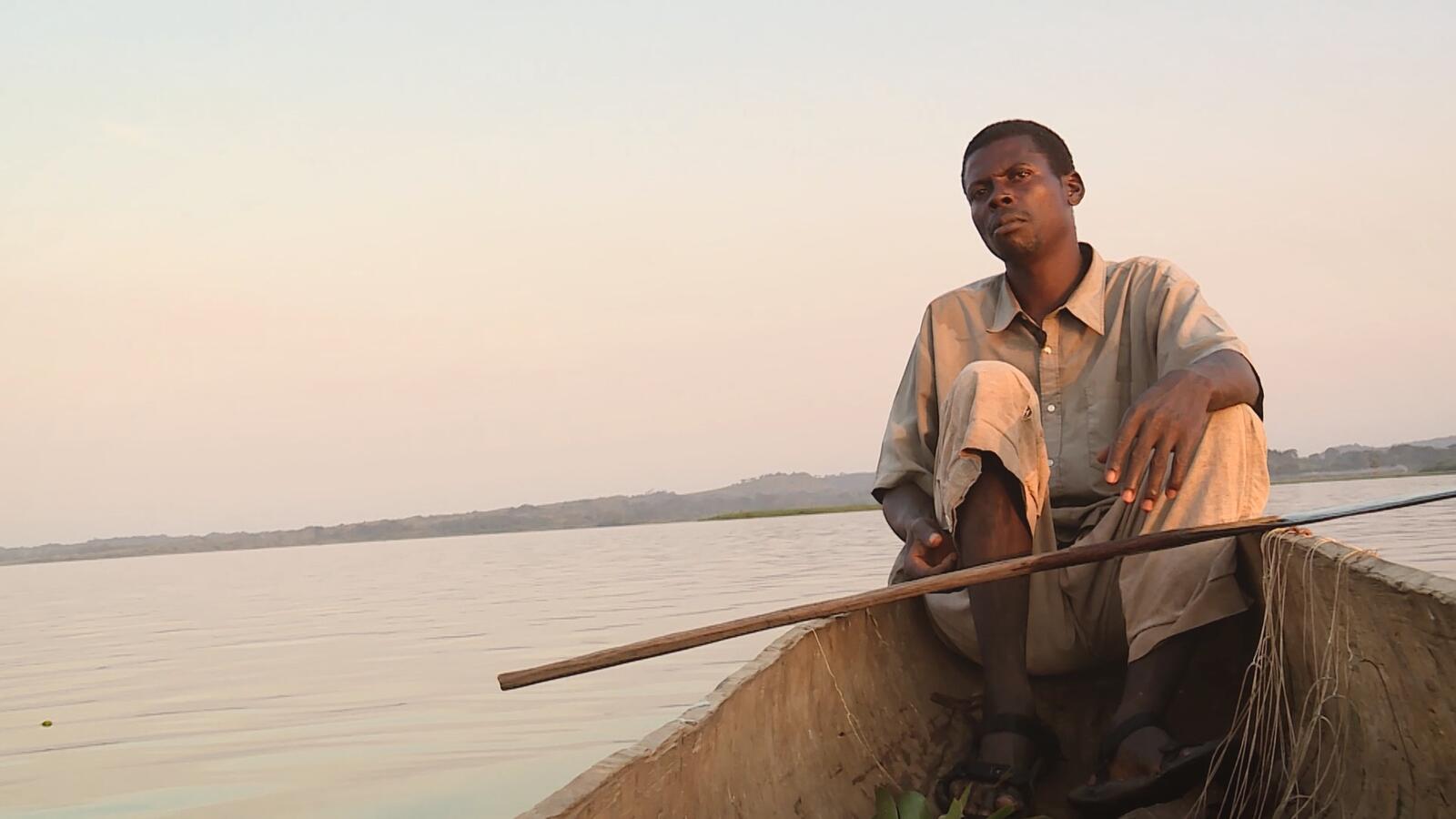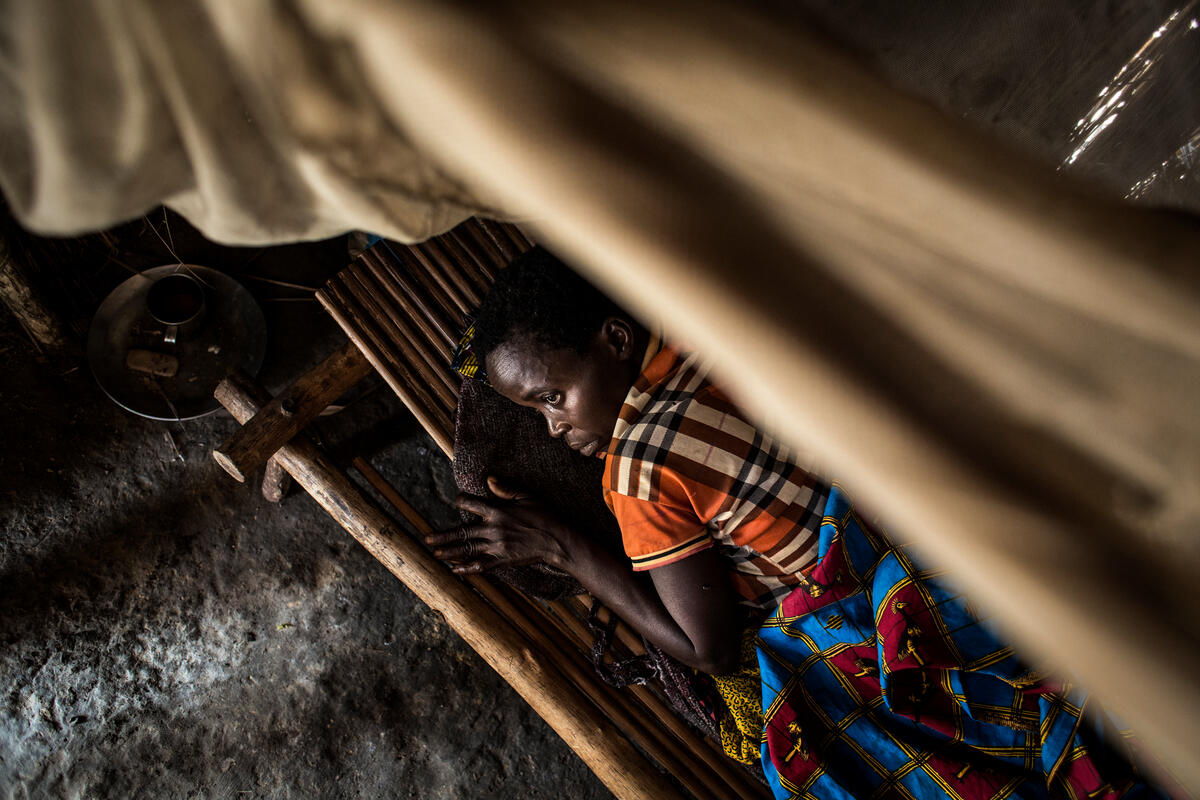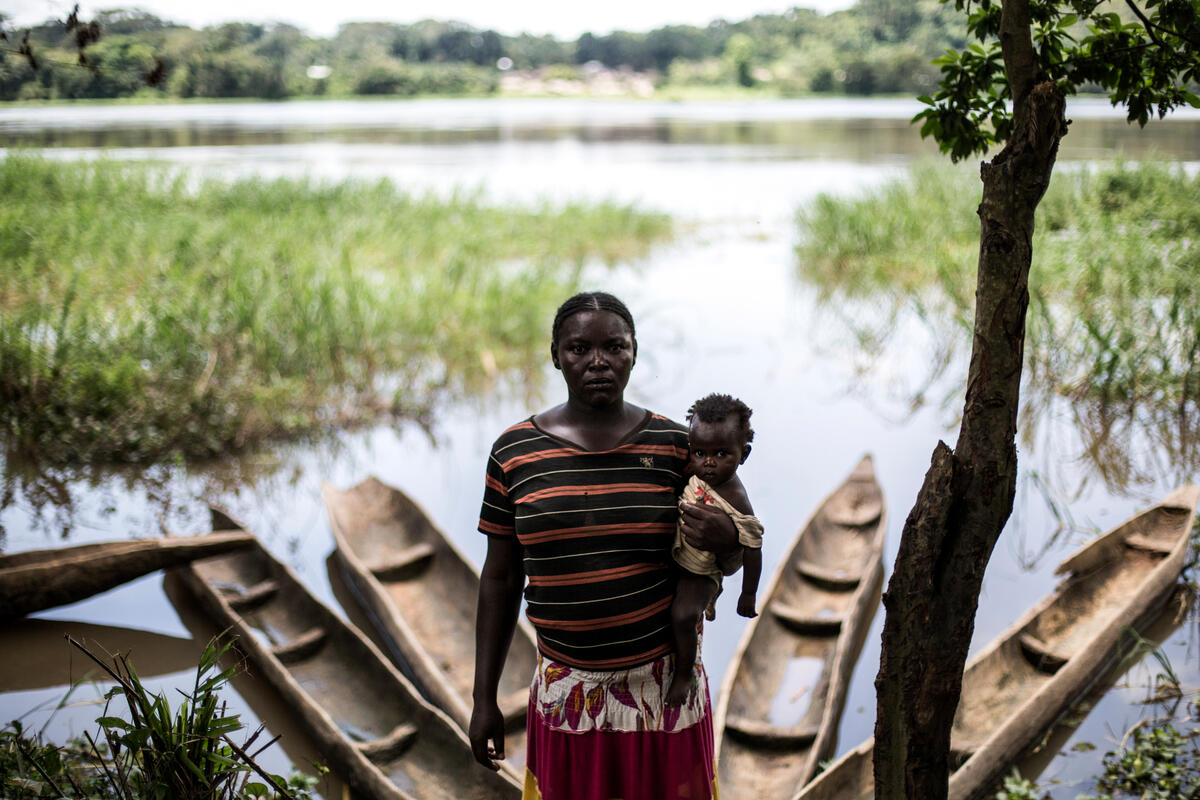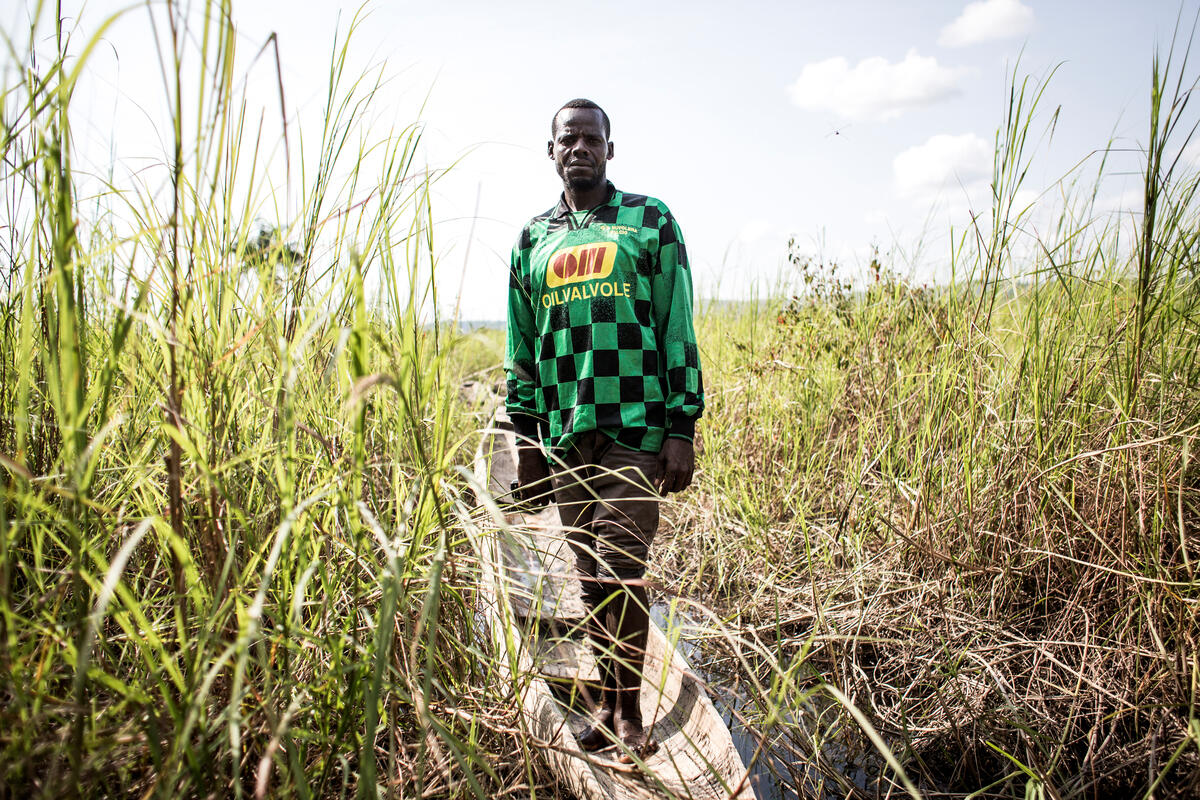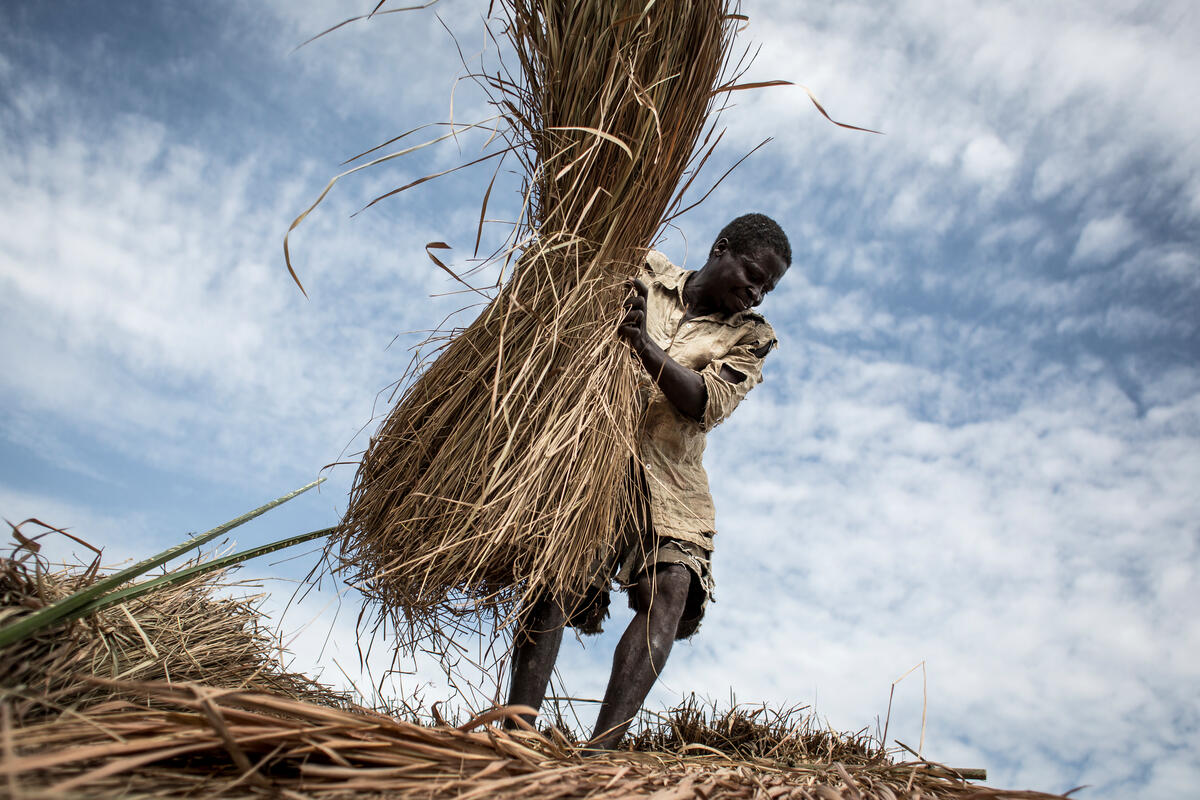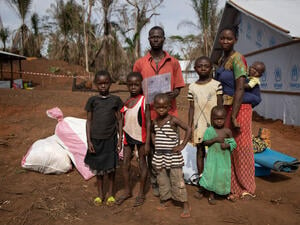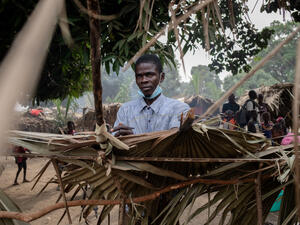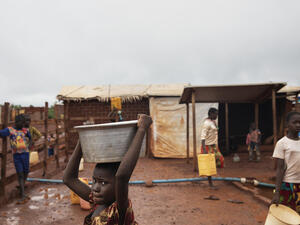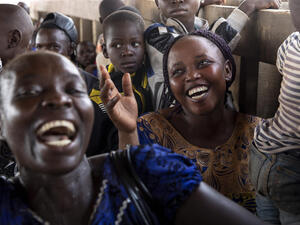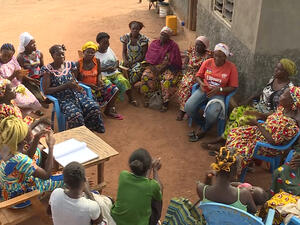Home is close, but so far away for Central African Republic refugees
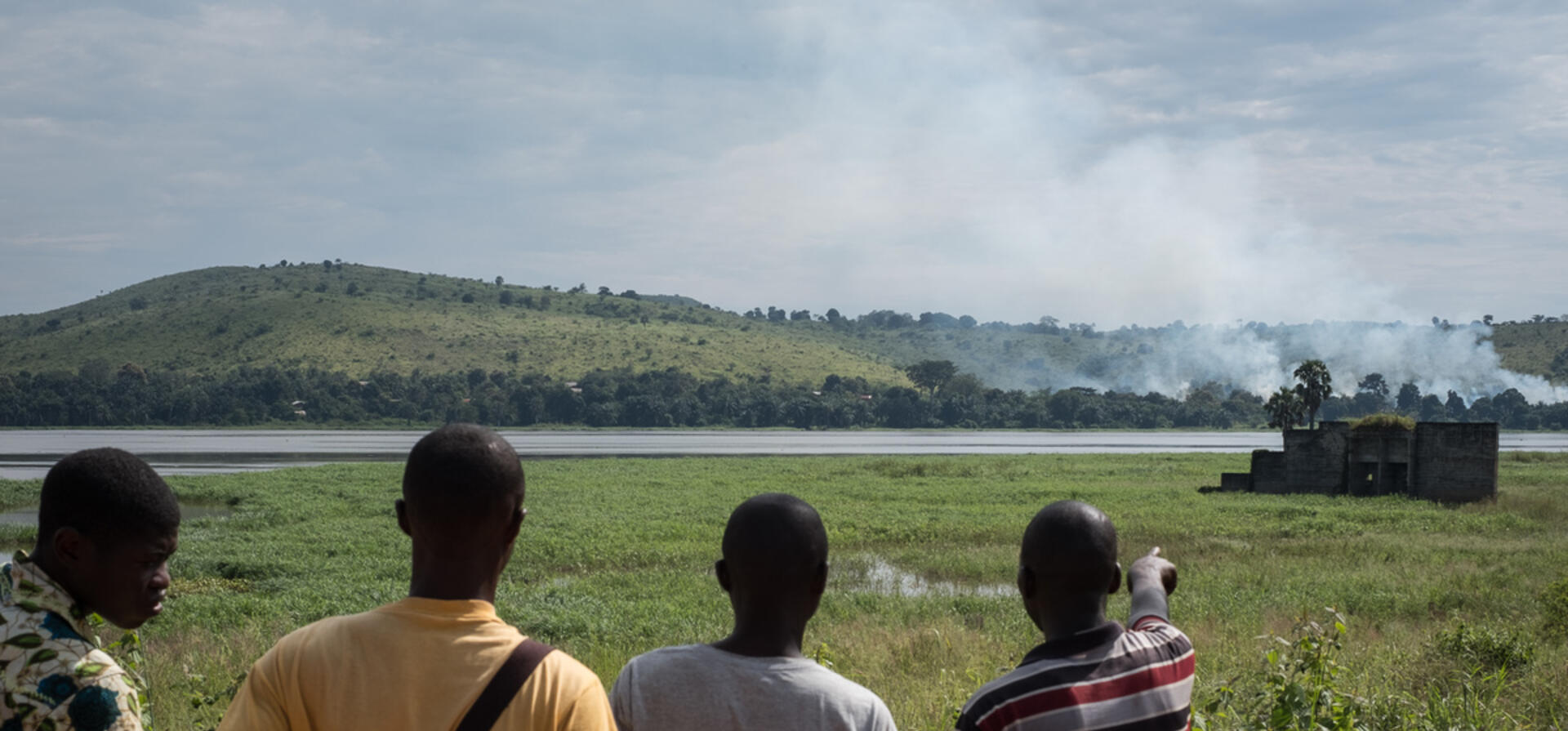
Home is close, but so far away for Central African Republic refugees
As smoke rises over the lush green landscape from fires across the river, inhabitants of Mobayi-Mbongo in the Democratic Republic of the Congo (DRC) stop on their way to market and gather on the bank to watch.
Sporadic gunfire interrupts their conversations. Further downstream, a dozen canoes with women, men and children cross the river to safety.
Rose Yasambia, 30, stands in the crowd and weeps. “They are setting all the houses on fire,” she says. “Soon they will be at our house.”
Rose and her family crossed from Mobaye, a town just across the river in the Central African Republic (CAR), four months earlier. Armed groups and the fires have destroyed any hope they had of returning home soon.
“All our belongings are there, we could not take them with us,” adds Rose. “If one day there will be peace, we’ll have no place to go back to.”
“They are setting all the houses on fire."
Like Rose, more than 60,000 refugees have crossed the Ubangi and Mboumou rivers in the past five months, fleeing the war-torn CAR for neighbouring DRC. Many are settling in remote river communities, with their home villages still in sight across the water but out of reach for those who do not want to risk their lives.
On the Congolese side, some villages have grown to four times their original size due to the refugee arrivals and life is hard. “The children are dying, and we do not even know why,” says Philomene Gerekanda, traditional chief of the village of Lembo Rive in DRC in which refugees have set up huts next to the houses of locals. There is a lack of health services, not enough schools and not enough drinking water.
UNHCR, the UN Refugee Agency, continues to register new arrivals and has provided essential relief items like plastic sheeting, buckets and sleeping mats to refugees. The agency is also drilling wells to reduce water-borne diseases, since many people drink the water from Ubangi River.
But despite over 500,000 CAR refugees spread across the region, the crisis remains the most underfunded in the world. In 2017, UNHCR and partners appealed for US$209 million. To date, only 9 per cent of those funds have been received, making it a challenge to help CAR refugees who have been displaced for years, as well those continuing to flee.
Those who dare to return home can pay a heavy price. Virginie Anyezou was so desperate to find food for her hungry children that she and her 15-year-old son took a boat home across the river. Now she is lying on a bamboo bed in a small village on the Congolese shore of the Ubangi River, motionless and speaking in a low voice.
“I needed something to cook for the children, so I told my oldest son to come with me,” she recalls. “We wanted to harvest the manioc from our field.”
“When we came near, my son said to me: ‘Wait, I can hear the voices of the armed men. So we went a bit further. But they had seen us and were waiting for us. They shot at us and the boat turned over. We cried for help, but nobody came.”
Virginie and her son were finally rescued by fishermen, but she was shot in the thigh and a bullet penetrated her son’s hand. The same day their neighbour, father-of-five Michel Baleto, 40, was killed when he tried to get food from his fields in CAR.
"We cried for help, but nobody came."
Many villages on the banks of the CAR are now deserted. A priest who recently crossed reports that armed groups require civilians to wear a ribbon to show their allegiance – yellow for one side, red for the other. “There is no neutrality anymore,” he says. “They force everybody to take sides.”
There are reports of armed groups forcing people to return. "In some locations, refugees tell us that they receive a message from the fighters on the other side: ‘We have conquered your village. Either you return or we will set your house on fire’,” says Pierre Richard Muhima of UNHCR in DRC.
Meanwhile, thousands continue to flee over the border. “We were the last ones in the village,” says Francois Koko, a 42-year-old fisherman who is happy that he, his wife and their three children aged one, two and five are safe. “It was three in the morning when we heard gunfire all around. I did not know which one of the groups it was. We got up and ran. We took nothing, we just grabbed the mosquito nets and the bed sheets.”
In the early hours, the family reached their fishing boat, a dug-out canoe.
“When we were in the canoe, the children panicked with all the gunfire nearby. We had to hold them, so that they did not fall into the river.”
Standing knee-deep in the water next to his fishing boat, he gazes across the river.
“There is nobody left over there to teach, there are no schools anymore,” he says. “And all the nurses have fled to the capital, Bangui.”
His village is less than a thousand metres away but, for now, it is out of reach.

